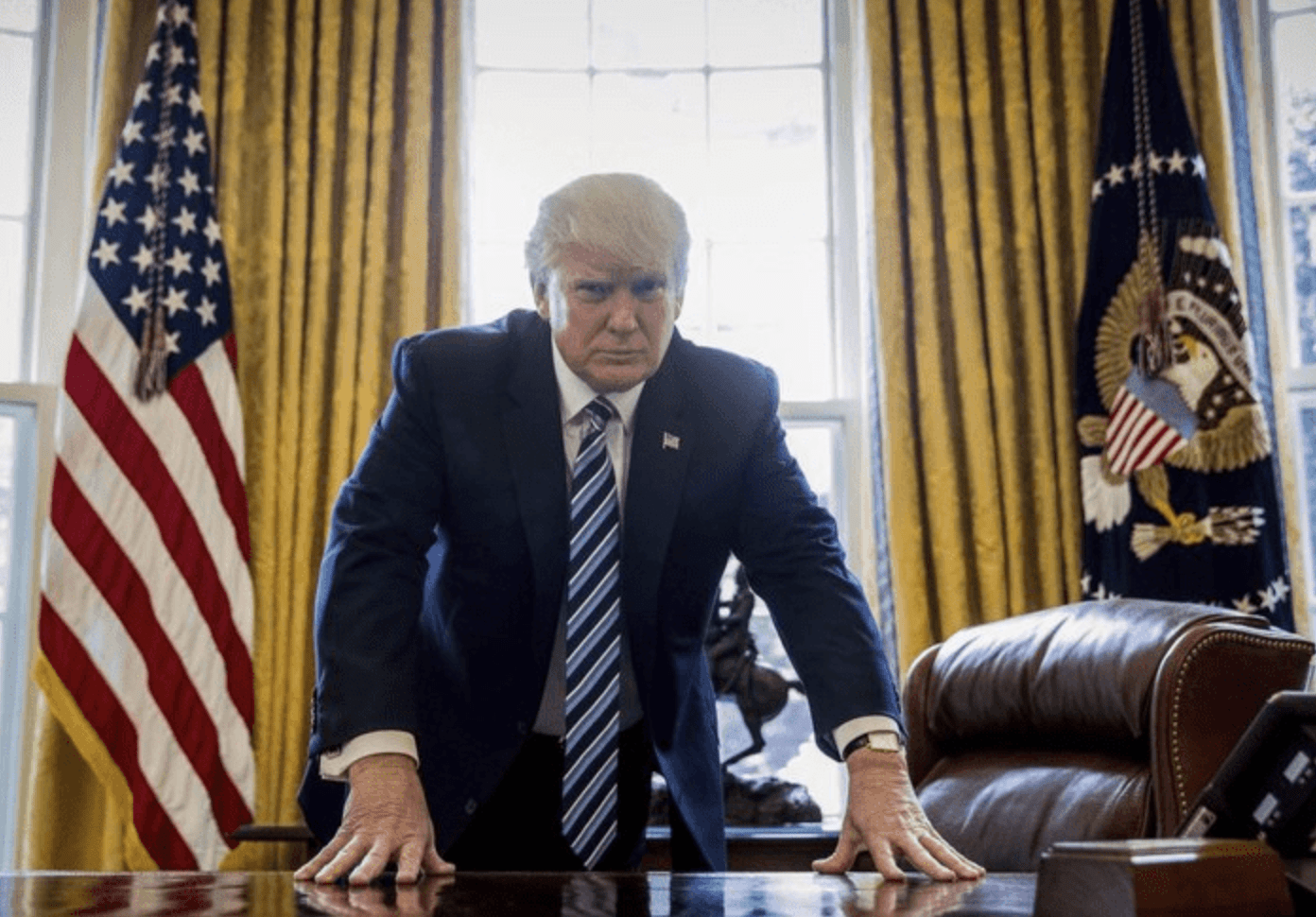Back to the Future: The Predictable Return of Donald Trump
 AP
AP
By Lisa Van Dusen
November 6, 2024
One of the most serious indications that the presidential election campaign that just produced a second victory for the most empirically unelectable candidate in history wasn’t a normal race came in the days following the September 10 debate.
Kamala Harris won that debate in such an overwhelmingly obvious, floor-sweeping, hands-down, historic fashion based on every possible measure of victory, that even without her opponent yelling that immigrants were eating dogs and cats, she’d have been the undisputed winner.
But it was what happened next that revealed so much about this campaign. In some polls, Harris registered a post-debate bump. But overall, what should have been an overwhelmingly undisputed game-changer, changed nothing. To someone who, as a 21-year-old junior press aide, was on the Mulroney bus the day after his knockout debate performance against John Turner – a nonplussed but not dangerously unhinged opponent – and survived the sudden, delirious, mobbing to tell the tale, it was that kind of defining, 10-point swing campaign moment.
That Harris received no identity-crystallizing, relief-fuelled, gratitude-imbued, irreversible polling advantage from the job she did neutralizing an obvious madman and threat to American democracy based on her debate performance was just one anomaly in a race defined by unprecedented anomalies, and it said a number of very practical things about this campaign:
1) Harris wasn’t just running against Donald Trump. As has become obvious in the parade of dictator love-ins, impeachments, felonies, vulgarities, viral stunts and other democracy degrading content over the past eight years, Trump is a symptom, not the problem. He is the leading man and public face of the American franchise of a global war on democracy that has taken many forms in the past two decades, most notably via covert operations-enabled hybrid and narrative warfare, especially in the corruption-infrastructured spread of surveillance-state autocracy posing as right-wing populism described in Anne Applebaum’s recently published Autocracy, Inc.
2) Kamala Harris’s performance as a candidate was not going to be a crucial variable in the outcome of a race whose preposterousness lay not just in the apparently unfathomable viability of a twice-impeached, coup-plotting, aspiring-dictator GOP candidate but in his ability to defy all logic, rational discernment, precedent, history and polling gravity in maintaining a too-close-to-call clinch.
Trump’s reinstallation in the White House is really not about going back, it’s about expediting a transition to a post-democracy future.
3) Donald Trump’s performance as a candidate was not going to be a crucial variable in the outcome of a race that had already become a showcase for horrifying levels of fearmongering, misogyny, racism, mendacity, and other performative propaganda of a type previously only disseminated by candidates in regimes already fluent in the preordained outcomes of authoritarian electioneering, and even they tend to be more circumspect and restrained in deference to the need for a reassuring facade.
4) As such, Trump’s victory is not so much a reflection of American division, collective lunacy or electoral masochism on the part of half the population of the world’s democratic superpower (for now) who’ve apparently just voted to – based on the overwhelming preponderance of anecdotal campaign evidence – disenfranchise themselves. It is the means to an end whose contributing elements have been in place since long before Tuesday, and long before Trump’s first inaugural address.
Between the global context of rising autocracy for which his victory will serve as an asymmetrical accelerant based on America’s status as both the world’s flagship democracy and liberal international order linchpin, and the impact that anti-democracy trajectory will have on the lives of citizens not just in America but around the world, Trump’s reinstallation in the White House is really not about going back. It’s about expediting a transition to a post-democracy future whose 21st-century characteristics are increasingly obvious in jurisdictions worldwide and to which pro-democracy, freely and fairly elected leaders present an obstacle and irritant.
For Canada, in the immediate term, Trump’s return to power should benefit Justin Trudeau in the same way his last presidency did – as a behavioural foil and deterrent to anyone who sees today’s iteration of right-wing populism as an anger management proxy. Then again, if logic and reason were still factors in polling popularity, Trump would be heading back to New York, or to a federal penitentiary.
I’ve been covering US politics since the last two years of the Clinton administration, and I’ve never not been glued to the incoming results of an American election. On Tuesday night, I watched a movie and went to bed early. For a race that was apparently too close to call, the outcome was utterly suspense-free.
And whatever comes next – tomorrow, next week, from January on and over the next year of this new future – will tell the world why.
Policy Editor and Publisher Lisa Van Dusen has served as a senior writer at Maclean’s, Washington columnist for the Ottawa Citizen and Sun Media, international writer for Peter Jennings at ABC News and an editor at AP National in New York and UPI in Washington.
